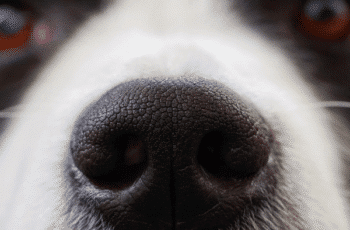One thing people with autism have in common is an inability to respond to their feelings. Dogs are better able to read the feelings of their owners. This can help the autistic child learn how to react appropriately to his own emotions.
The dog might also help the autistic child learn that he is part of a family and what it means to have a “pack.” The dog will also help the child understand social rules, develop better coping skills for his feelings, and give him confidence. Dogs help autistic children to feel more compassionate, good, and happy.
10 Ways a Dog Can Help an Autistic Child
1. Dogs have also been used to assist with autism-related disorders and provide therapy. They are known for being very gentle animals who encourage affection, playfulness, and socialization. As many people struggle with adjustment when they have Autism Spectrum Disorder (ASD), animals provide a positive outlet for people to express themselves without feeling judged by others.
2. Dogs often have a calming effect on autism. They can help socialize those with autism, as dogs often gain attention from other people as well. The bond between a dog and its owner can be very strong, especially if the owner shows great affection towards their dog.
3. A person with autism can find it difficult to communicate with others, especially those who are unfamiliar. Dogs provide an opportunity for an autistic person to practice communication that they may not normally do. The dog will likely be very receptive to the touch and voice of its owner, so the autistic individual can practice communicating with others in a non-judgmental setting.
4. When dogs are around, those with Autism often accept the affection and attention of the dog by engaging in play and petting. Since dogs usually don’t judge a person, they can be an excellent outlet for those who may be struggling to come out of their shell.
5. Some people with Autism struggle with anxiety and can become very nervous when in large crowds. Dogs bring a sense of calmness and comfort that many people need daily. Anxiety can often be reduced when a person is around a dog, and they are often seen as the “go-to” friend for many people.
6. Dogs are known to instigate affection and playfulness, which sometimes helps those with Autism. A dog’s unconditional love for its owner can motivate a person to behave in the same way with others.
7. A person with Autism might also find they are so closely connected to their dog, the dog helps them through many situations in everyday life. People with Autism often try to project a positive attitude over their own lives but can have a hard time when things don’t go well. They may even be deemed “un-social” by others and find it difficult to let others know how they feel. A dog can provide an outlet for some of this stress that an autistic individual may be dealing with.
8. Dogs can also help motivate a person with Autism to take care of themselves and improve their behaviors. Those with autism can sometimes have communication issues and aren’t often able to express how they feel. But when a person is around the dog, they may find that their behavior may change because they feel better about themselves.
9. Being around a dog can encourage many different emotions such as love, affection, attention, and care. Those with autism typically seem to enjoy these by simply being around the dog.
When a person is around the dog, they often feel comfortable showing their emotions and can engage in play and petting. They might even develop some feelings for the other person because they can see how happy the dog makes them.
10. Dogs are known to teach many lessons about life to those who are autistic and show others how to interact in ways that are less offensive to others who may have Autism.
Dogs can also help motivate a person with Autism in school, as some children with Autism cannot make friends at school simply because of their awkward behavior or aloof attitude. But when they are near a dog, it is often their best friend in the school, and they feel very comfortable knowing they are there.
In Summary
Dogs have so much to offer to those with Autism and are often sought after for their unique abilities. We have all had dogs who are more social than us and can be very helpful to an autistic child learn how to communicate with others. Dogs can also provide an outlet for a person who may feel that they don’t fit in or “act right” due to their autism. The unconditional love a dog has for its human family member is amazing, and it can be great therapy for those on the spectrum. We now know that dogs are often very loving and kind animals that are a great source of therapy for those with autism.


